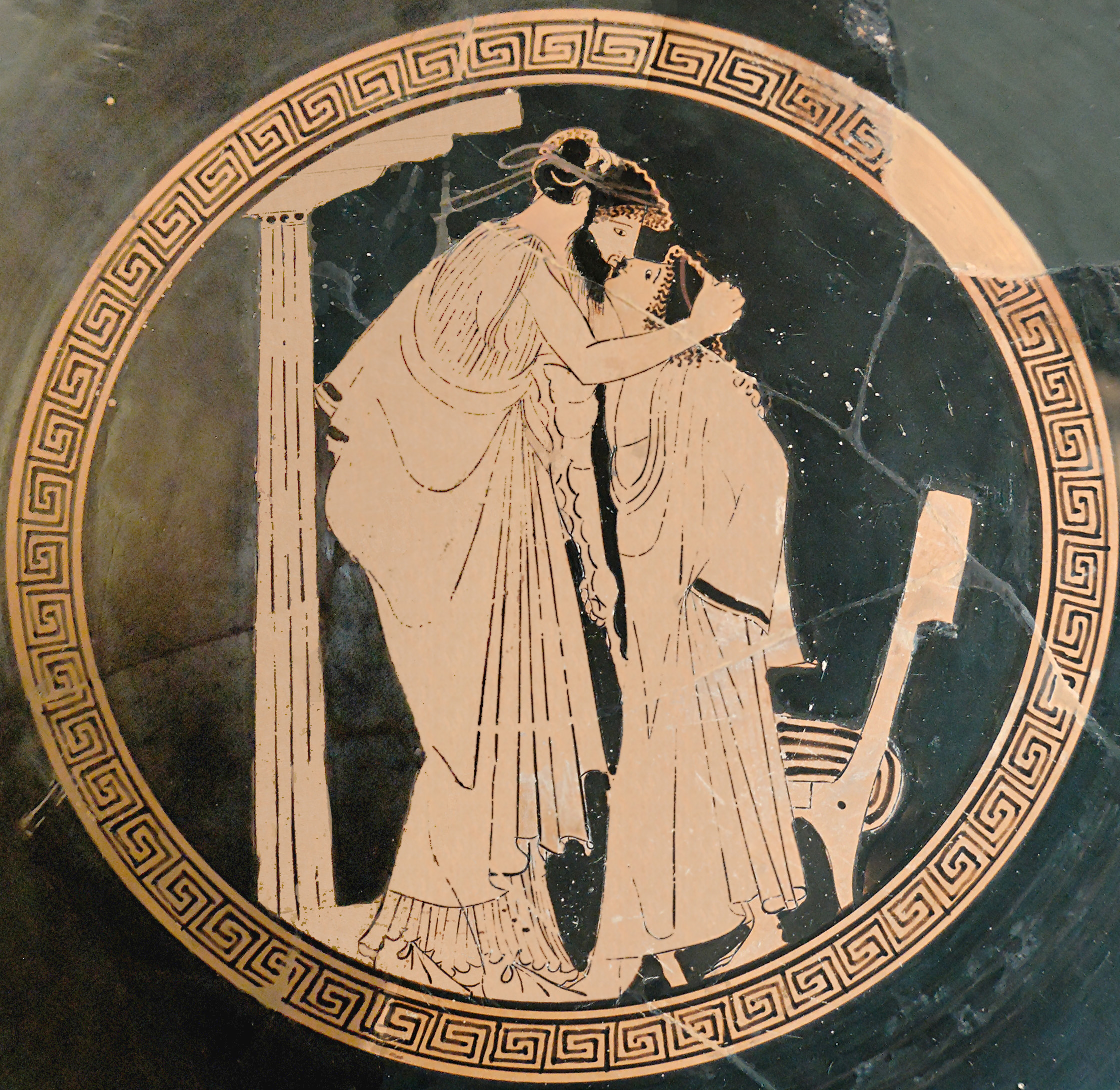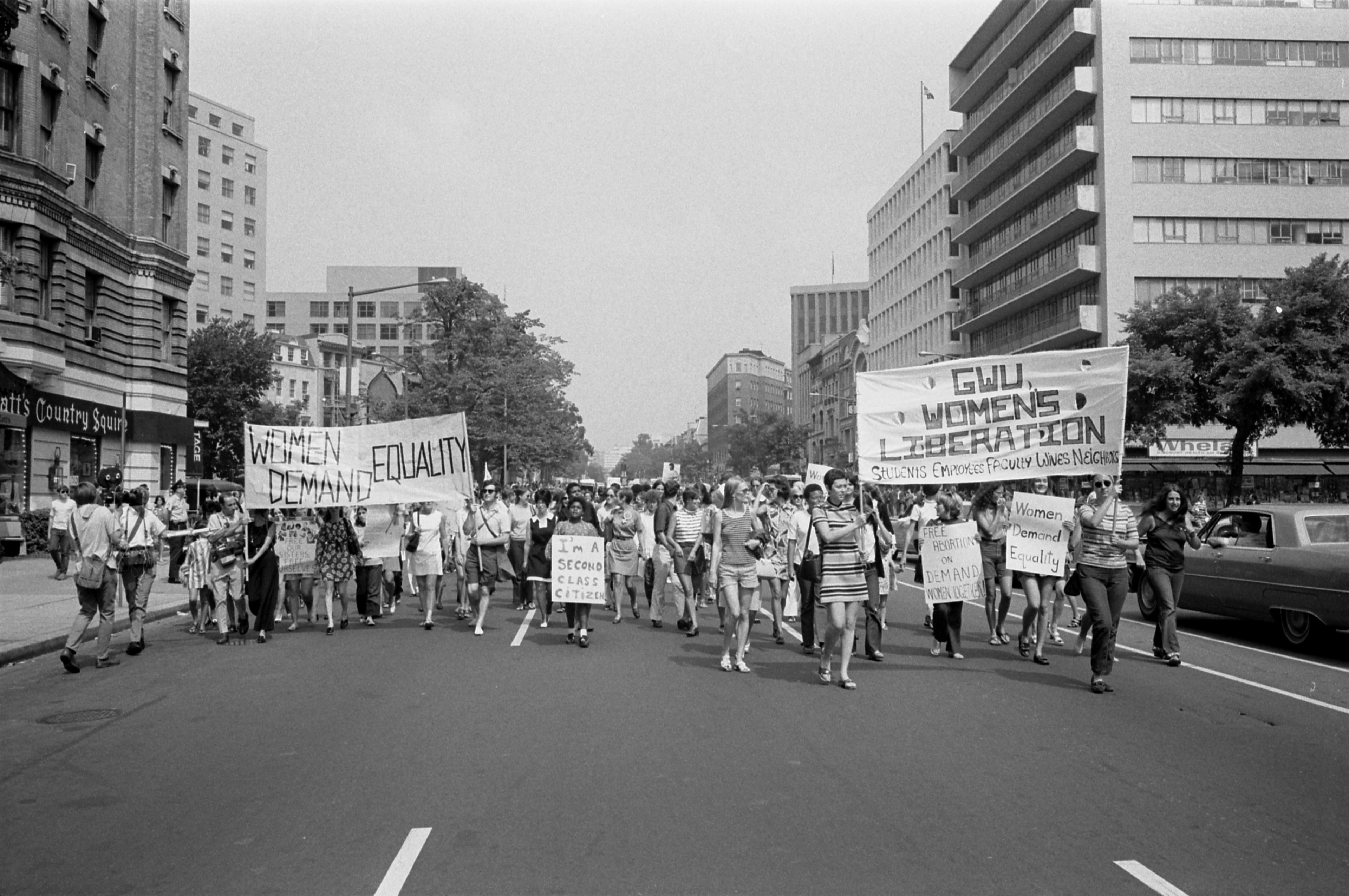The History of Sexuality
One of the major contributions that Foucault makes in his career is to work on the question of sexuality. Foucault was a gay man, who struggled with the question of his own sexuality at the beginning of his life, but later became much more reconciled to it and much more public about these kinds of questions.
The History of Sexuality was a major undertaking that Foucault began, in the most obvious way, in the mid-1970s. You can see elements of this in his lectures in the 1960s, but in the mid-1970s, in his Collège de France lecture courses and in some of his visiting lectures elsewhere, he says that he’s taken on a kind of project that’s like a sequel to his History of Madness, and this is The History of Sexuality.
The first volume
Foucault publishes the first volume of The History of Sexuality in 1976, and in that book and in a front-page advertisement in Le Monde, Foucault promises that there will be five subsequent volumes to this book. The first volume is very much an introduction, an overture of themes that he plans to treat in the next books.
In this volume, he takes issue with what’s known as the ‘repressive hypothesis’. This is an idea that was a combination of Freud’s insights and Marx’s insights – that sexuality had been controlled, repressed and regulated in all sorts of ways. One of the reasons for this was because it allowed a docile population that could be used productively within the capitalist economy.
Foucault outlines that repressive hypothesis at the beginning of this first volume and then says, hang on a moment – is this actually the case? Is sexuality always repressed, or has there not actually been an explosion of discourse – specialised, scientific knowledge about sexuality? If we look at biology, if we look at psychology, if we look at medicine, there’s a lot of talk about sexuality, and it has become – certainly for somebody with a religious upbringing – something that you are invoked to talk about. So, Foucault is issuing a challenge to some of the dominant ways that sexuality was being talked about at the time that he was writing.
A change of plan
What Foucault outlines in the first volume is that the second volume will be a treatment of the question of confession largely within the Catholic Church. He then says that there will be four volumes that follow, on the four constituent subjects of sexuality: the perverse adult, the hysterical woman, the masturbating child and the Malthusian couple.
Foucault publishes no further volumes of The History of Sexuality on that plan. Instead, eight years later, in 1984, very shortly before his death, he publishes two volumes of The History of Sexuality. One is on Ancient Greece; the other is on Ancient Rome. They’re written to a very different plan and have very different questions or issues that Foucault is interested in. One of the things I’ve been trying to do in my work is to understand how Foucault made that change. Why did he decide to abandon the thematic version he outlined in 1976 and turn to the much more historical version that he published in 1984?
The question of confession
One thing that I think has become very obvious with the publication of now the fourth volume of The History of Sexuality, which is on the early Christian Church, is that Foucault was interested in the question of confession. He was interested in confession of sins, and particularly of sexual sins. In the first volume, in 1976, Foucault thinks that you can date the concentration on sexual confession in the Church to around the 16th to 17th century, so the late Middle Ages through to what we now call the early modern period: the Reformation and the counter-Reformation.
Yet, when Foucault digs into this material in more detail, to write what would be initially the second volume, he realises that a lot of these proclamations that the Church makes actually date back much further – centuries further, even a millennia further. You can see traces in his lecture courses, in his visiting lectures elsewhere, that he’s going back through deeper historical material.
In the late 1970s and early 1980s, he writes a second volume of The History of Sexuality on confession, but instead of it being on the 16th to 17th century, it’s on the 2nd to the 4th century of our common era. However, Foucault realises that this study of Christian antiquity rests on a number of ‘clichés’ about pagan antiquity. So, he puts this manuscript, which is now under the title of Confessions of the Flesh, aside and delves deep into pagan antiquity to think about some of these questions about sexual behaviour, sexual codes and sexual norms in those societies.
It’s that work on pagan antiquity that he then publishes right at the end of his life on the Ancient Roman and the Ancient Greek understandings of – not sexuality, because he thinks that’s a largely modern term – what he calls the notion of “aphrodisia”, the notion of pleasure. Foucault had intended that he would then follow this with a volume on the early Church, which would then be the fourth volume of The History of Sexuality, but he dies in 1984, before he’s able to finish work on that volume.
From “aphrodisia” to “the notion of the flesh”
Foucault identifies the notion of aphrodisia as a way of understanding how Ancient Greek society understood what we would now call sexual relations; that the adult male could have sexual relations with his wife but also with slaves, perhaps with young boys. This was something that Foucault thought could be understood through the texts that we still have from the classical age. This gets replaced with what he calls a new experience with the early Church and Christianity. He calls it “the notion of the flesh” – the flesh is consumed by sin or sexual desire parallel to the physical body.
The notion of the flesh appears in a number of early Church writings. Foucault thinks that this Christian notion of the flesh, with a much more restricted and regulated way of understanding what was permitted sexual behaviour, shapes the beginning of the current era, from the beginning of Christian antiquity through to the Middle Ages. Here, instead of sexual behaviour being licensed for people in a range of different ways with a range of different sexual objects, sexuality is either confined to the married couple, or it is, for the monk, something that is removed entirely – the question of abstinence, the question of celibacy. So, Foucault thinks that something different has happened in this, and it is in the early Church that you find these kinds of regulations that control and organise sexual behaviour.
Challenging contemporary ways of thinking?
Foucault is not trying to say there are lessons in the historical past that can help us to change the way that we do things today. It’s not a suggestion that we go back to how people did things in Ancient Greece or in the early years of the Roman Empire, or certainly not to the early Church fathers to think about these questions. He is interested in trying to explore how these issues have been understood and practised in these different times and places, to shake up some of the ways that we accept things as largely taken for granted today.
He is also interested in alternative sexual practices, alternative ways of organising the relation between bodies and pleasure in the present moment. He was particularly taken by the gay scene in California, for example. So, Foucault does see that there might be different ways of organising or challenging contemporary ways of thinking about sexuality.
A product of his time?
You can certainly situate some of Foucault’s ideas in relation to other debates that were going on at the time that he was writing, whether it’s the feminist movement and some of the French thinkers – Simone de Beauvoir’s The Second Sex for example – or whether it’s in relation to the sexual liberation movement of the 1960s through to some of the experiences that he had in the gay scene in California in the 1970s and 1980s.
However, one of the things that’s most important about Foucault is that he can’t simply be reduced to a product of his time. Actually, a number of the things that Foucault writes shape the way that things have been talked about in the period since.
Foucault has a slightly uncomfortable relation to feminism, but many feminist thinkers have found something in Foucault that they found powerful and useful in their own work. Foucault’s work is certainly very important in terms of queer theory, in terms of the study of the question of gender, even though the sex-gender distinction is not really one that Foucault makes use of in his own work. So, Foucault’s work is certainly connected to debates that are going on at the time, but it’s not entirely shaped by them. Often, Foucault is shaping those debates as much as those debates are shaping him.
Foucault and Freud
Foucault is interested in the work of people like Sigmund Freud. In the early part of his career, he was teaching psychology to philosophy students, so this would have been part of the curriculum. Some of his early publications are on psychology, where there is something of an engagement with Freud and other psychoanalytical work.
Foucault has quite a complicated relation to Freud. He sees Freud as an important figure but he says there is so much work that is already being done on Freud, particularly in France. Foucault’s understanding of Freud is both by reading Freud himself, but filtered through Jacques Lacan’s influential reading of Freud in the 1950s and the 1960s.
Challenging Freud’s assumptions
Foucault is interested in challenging some of the assumptions that are going on and in shifting from the psychological way of understanding some of the phenomena that he’s most interested in exploring. In The History of Sexuality, Freud is part of the problem that Foucault wants to challenge. He thinks that the way that Freud’s work has been used, particularly in political contexts, has misled us into understanding what’s going on around questions of sexuality. Sexuality is something that is not being repressed. It’s not something that needs to be uncovered. Actually, sexuality is being talked about all the time. It’s talked about on the psychoanalyst’s couch. It’s talked about in medical surgery. It’s talked about in terms of biology. It’s certainly talked about in terms of the Christian confessional.
‘A field of problems’
By sexuality, Foucault certainly means more than simply who you desire, whether it’s homosexuality or heterosexuality. Foucault is interested in sexuality as a field of problems, a field of practice, a field of specialised knowledge and sexuality. We need to take into account medicine, biology, psychology, theology. These are the questions that we need to explore if we are to understand how sexuality is organised, ordered, controlled, regulated and so on. So, sexuality for Foucault might be to do with desire in a narrow sense of whether you desire the same sex or different sex, but it’s also to do with specialised knowledge and the practices that are associated with them. Those are the things that Foucault wants to explore and think about in The History of Sexuality.


